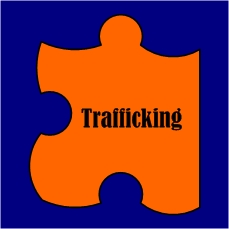New China Baby Trafficking Ring Bust Reveals the Price of a Baby Boy: $7730

Girls were sold for $4725.
“Police in Shandong Province busted a human trafficking network that included mothers bearing babies and their brokers in charge of selling the children.
A total of 17 infants who had been sold by their parents were discovered in the city of Zoucheng by local public security authorities last month.
Thirteen of them have been saved and sent to welfare centers, while the police are still searching for the other four.
“Working as migrant workers here, the families mainly come from poverty-stricken areas in Sichuan Province. Husbands went out to work and wives sold their babies to raise money,” said Chen Qingwei, a police officer who investigated the case.
The “most productive” couple had given birth to three children and sold them all, according to local police.
“A boy could fetch a price as high as 50,000 yuan ($7,730), with the price for girls at about 30,000 yuan. This is far more than what the parents could make by farming the land,” Chen said, noting that the police have not been able to track down the couples yet since they left the city immediately after the deals.
The infants were mainly sold to rural areas. Buyers include people whose own children died at a young age, couples unable to conceive and families who already have a daughter but still want a boy, Chen said.
“Unlike other child trafficking cases, there is a dilemma in this one because there is no place to settle these kids even if we could find their biological parents.”
Xu Xingdong, a 50-year-old farmer in the Xiangcheng county of Zoucheng, told Shandong TV that he had no idea that buying a baby was against the law.
“I borrowed 49,000 yuan from friends and relatives to have this baby boy and I treated him like my own. But now I lost both my son and the money,” Xu said, adding that he was worried about facing criminal charges.
A month after buying the boy, Xu was discovered by local police and the baby was taken away to a welfare center where Xu has visited the boy twice.
According to a ruling by the Supreme People’s Court, those selling their own children to make a profit will be punished and face a maximum of 10 years in jail, while buyers of an abducted child face a maximum of three years.
Li Jianmin, vice president of the China Population Association, told the Global Times that human trafficking has become a twisted social phenomenon in China.
“China’s regulations and laws for adopting children have many loopholes. The mechanism is very complicated and can hardly reach rural areas where child trafficking is frequent,” Li said.
“Besides, some people in rural areas lack basic legal knowledge and take it for granted that it is alright to buy kids abandoned by their parents,” Li added.
Zhang Zhiwei, a Beijing-based lawyer aiding several civil organizations dedicated to saving trafficked children, told the Global Times that under the current law, buyers who do not abuse the children or interfere with the rescue efforts can avoid being prosecuted, and the majority of buyers are not held criminally responsible.
Chen Shiqu, director of the anti-human trafficking department of the Ministry of Public Security, told reporters earlier this year that the massive and lucrative baby market acts as a major motivation for traffickers in the country.
A couple were convicted last month and sentenced to 10 and three years in jail respectively for selling their own children in Jiangsu Province.
The two, seeing their babies as a potential gold mine, sold four newborns in four years for over 70,000 yuan in total.
Besides, family planning officials in Shaoyang, Hunan Province seized at least 20 children born outside their parents’ birth quotas and sent those children to local welfare centers with a 1,000 yuan reward each, Caixin Century Magazine reported in May.
An anti-human trafficking campaign was launched in 2009 with authorities seeking to crack down on abduction and human trafficking. A national DNA database was also set up to help parents find their kids.
By the end of September, police had helped more than 1,400 homeless or abducted children return to their homes through DNA matching since 2009. ”
Shandong baby trafficking ring taken down
[Global Times 11/4/11 by Zhu Shanshan]
The ring was discovered in Zoucheng City. “Authorities in Shandong province last month detained 15 members of the gang who had paid women from other parts of China to bear children which they then sold to others, including couples unable to conceive and those wanting sons.”
““Working as migrant workers here, the families mainly came from poverty-stricken areas. Husbands went out to work and wives sold their babies to raise money,” police investigator Chen Qingwei was quoted as saying.
Police could not immediately be reached for comment on Friday.
Childless couples in China are currently allowed to adopt children from any source, which has led to a thriving underground child trafficking market.
Many academics blame the problem on the nation’s strict “one-child” policy, which has also put a premium on baby boys, as many families want a male heir.
Abductions and trafficking cases have sparked public concern in China following a string of scandals.”
“More recently, police said in July that they had freed 89 children in a crackdown on trafficking launched this year after online reports of widespread abductions sparked public outrage.
Police also arrested 369 people in the operation, which aimed to break up a pair of “large criminal enterprises” involved in child-trafficking across 14 provinces, they said at the time.”
China busts baby trafficking ring
[Agency France Presse 11/4/11]
REFORM Puzzle Piece


Recent Comments